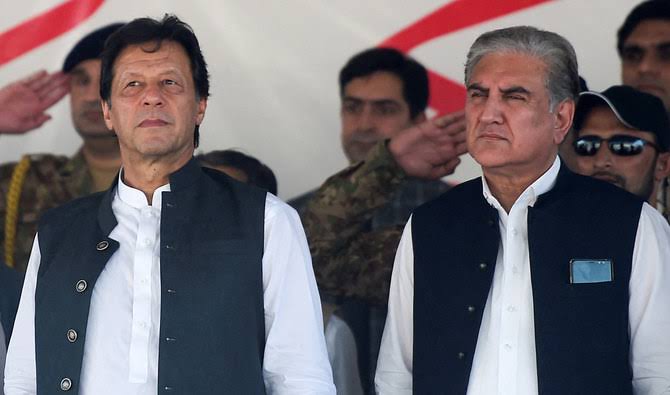Islamabad High Court Acquits Imran Khan, Shah Mahmood Qureshi in cypher case

The Islamabad High Court (IHC) has acquitted Pakistan Tehreek-e-Insaf (PTI) founder Imran Khan and party leader Shah Mahmood Qureshi in the cypher case, according to a report by Dawn. The verdict was announced by IHC Chief Justice Aamer Farooq and Justice Miangul Hassan Aurangzeb after they accepted the appeals of Khan and Qureshi against their convictions. This decision overturns the earlier ruling by a special court that had sentenced both leaders to 10 years in prison.
Despite this acquittal, Imran Khan and Shah Mahmood Qureshi are not expected to be released from prison immediately. Khan still faces sentences related to the Toshakhana and Iddat cases, while Qureshi has been detained in connection with the May 9 incidents. Their legal troubles continue to compound, reflecting the ongoing political turmoil in Pakistan.
The cypher case revolves around a diplomatic document that the Federal Investigation Agency (FIA) accused Imran Khan of not returning. Khan has claimed that the document contained a threat from the United States to destabilize his government. Both leaders were indicted in October and had pleaded not guilty. The Islamabad High Court had previously dismissed the government’s notification for a jail trial, declaring it erroneous and nullifying the proceedings.
In January, the special court began the cypher trial anew at the Adiala district jail after re-indicting Khan and Qureshi in December. The Supreme Court had approved post-arrest bails for the two leaders in December, but their releases were complicated by additional charges and re-arrests, particularly for Qureshi in the May 9 case. This intricate legal battle highlights the intense scrutiny and legal challenges faced by the PTI leadership.
During the trial, the special court recorded testimonies from various witnesses, including Azam Khan, former principal secretary to Imran Khan, who stated that the cypher never returned to his office. This key testimony was part of a series of witness statements that unfolded over several hearings. The legal proceedings were marked by accusations of delaying tactics and contentious cross-examinations.
The caretaker government escalated the matter by challenging the IHC’s verdict in the Supreme Court, which had previously deemed the trial illegal. This ongoing legal conflict underscores the complexities and high stakes involved in the case. The special court eventually recorded testimonies from a total of 25 out of the initial 28 witnesses.
Throughout the hearings, the defence team faced significant challenges. The prosecution accused the defence of intentionally delaying the trial, leading to the appointment of state-appointed defence lawyers. Imran Khan criticized the trial as a “joke,” underscoring his belief that the proceedings were biased and manipulated.
This acquittal by the IHC marks a significant development in the prolonged legal saga involving the PTI leaders. However, with multiple other charges and legal battles still pending, the road to actual freedom for Khan and Qureshi remains fraught with obstacles. The political landscape in Pakistan continues to be highly volatile, with the judiciary playing a central role in the unfolding drama.





